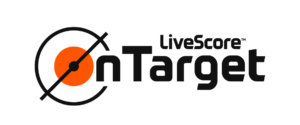The world’s first ‘applied futurist’, Tom Cheesewright works with brands to help them respond to future trends and technological change. He’s an author, global event speaker and media commentator.
Who is your digital hero?
I’m really torn here between two leaders of open-source projects that are hugely important to me.
The first is Paulus Schoutsen, creator of Home Assistant, the open-source home automation platform that has totally turned that market on its head and which has become arguably the de facto standard for anyone wanting to integrate multiple different types of hardware in their smart home.
I’ve been playing with smart home technologies for over twenty years now, including building my own system – hardware and software – from scratch. But Home Assistant just makes everything so easy and powerful.
Paulus gets a lot of plaudits though, so I might plump for a lesser-known digital hero: Johannes Huebner, originator of the Open Inverter project.
What has he done to win hero status in your eyes?
Open Inverter is what allows nerds like me to smash together various bits of wrecked electric cars and hybrids into our own projects and have them run.
I’ve been driving my home-made electric car – a converted BMW Z3 – for a year now. And I’m just starting on my second (check out here to follow along).
The open-source EV community now has lots of heroes and contributors, but Johannes with the Open Inverter project was one of the key catalysts.
How has hie heroism helped drive digital?
In many ways this is about the open-source approach more than one individual. I love how people with unusual passions from around the world can coalesce around a single challenge, co-operate to address it, and then rapidly and radically improve on their original design.
But it starts with one person having the combination of talent and bravery to put their work out there. To say that this is the problem I am trying to solve, to acknowledge that they may not have all the answers, and to ask other people if they want to contribute.
This is where my own contributions fall down though: a friend once told me that my code makes his “inner geek sad.” But I’m trying and I do what I can to support documentation etc.
What the biggest challenges in digital we need another hero to solve?
For me as a futurist, one of the most interesting challenges right now is the user interface for the metaverse. There are two competing visions right now and I think they are both wrong.
One is sort of “the web, but through a pair of smart glasses” – hideous and utterly dystopian. The other draws on the design language of VR gaming: all bright colours and quirky avatars. It’s just too in-your-face.
We need something subtle, natural, and intuitive. As much of a shift from today’s VR as the multi-touch screen was from the keyboard and mouse. Something that uses colour, sound, and maybe haptics, to give us a genuine sixth sense for the digital world overlaid on our physical reality.
For me this is a much greater challenge – and barrier to the success of a mixed reality metaverse – than the hardware, the connectivity, or the privacy issues.
What is your most heroic personal achievement so far in digital?
I’m not sure about heroic but I’m proud of how long I’ve been banging the drum about the coming together of physical and digital in various forms.
Even before I became a futurist full time (ten years ago now), I was giving talks and trying to convince my colleagues and competitors in digital agencies that they needed to go beyond the virtual and recognise the opportunities presented by the incoming technologies that blur the line into the physical.
Since then, we’ve seen mass market VR, AR, smart speakers, accessible home automation, drones, all hit price points and levels of maturity that made building applications for them accessible to people with relatively basic levels of digital skill.
I still think this is a huge opportunity for those organisations and individuals brave enough to pursue it.









